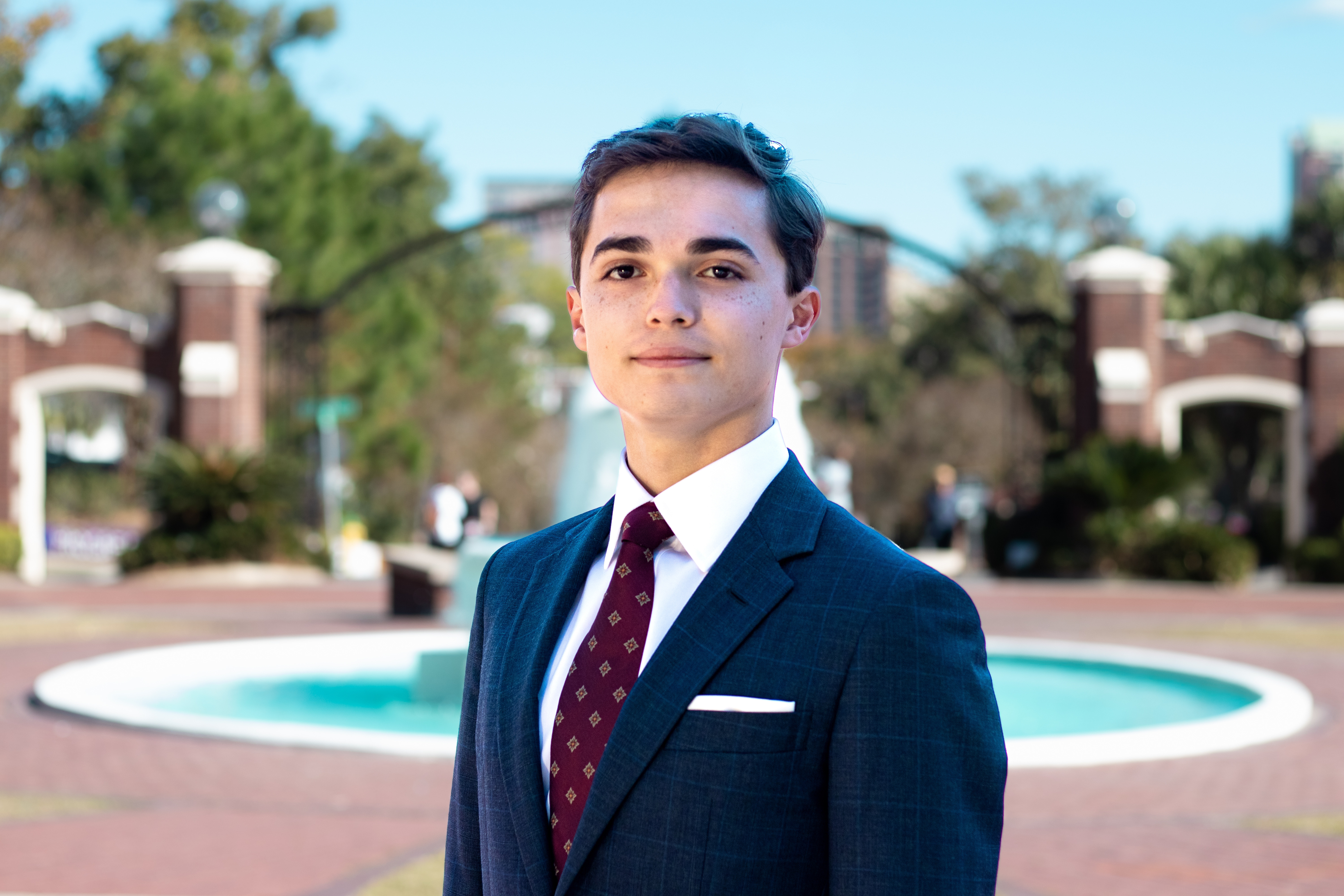Research Symposium
22nd annual Undergraduate Research Symposium
Eli Mckown-Dawson Poster Session 7: 3:30-4:15/Poster #7

BIO
Eli is a second-year student double majoring in Political Science and Philosophy. His research interests center on public opinion, survey methodology, political behavior, and elections. Outside of his work with Dr. Samuel Staley and the DeVoe L. Moore Center, he is a Fellow with the Institute of Politics at FSU, Director of Operations for the Torchlight Campus Policy Center, a member of the Research-Intensive Bachelor’s Certificate Program, and President of the Pre-Law Society at FSU. Eli also serves as a research assistant for Dr. Lonna Atkeson at the LeRoy Collins Institute. While not studying or conducting research, he enjoys reading and playing the violin.
Political Climate on College Campuses: A Comparative Analysis of Recent Findings
Authors: Eli Mckown-Dawson, Dr. Samuel StaleyStudent Major: Political Science & Philosophy
Mentor: Dr. Samuel Staley
Mentor's Department: The DeVoe L. Moore Center Mentor's College: The College of Social Sciences and Public Policy Co-Presenters:
Abstract
The political and social climate on college campuses has become an increasingly salient issue. Private polling companies and state governments alike have taken measures to quantify viewpoint diversity and freedom of expression in university settings. This project analyzes recent survey findings to assess whether political ideology and partisan motivated reasoning impact student views on campus climate.
Two approaches were taken to answer this question. First, descriptive statistics from seven recent surveys on campus climate were aggregated and compared across demographics. Second, OLS regression was used on data from the 2019 Campus Expression Survey—a national poll of undergraduate students with 1,580 respondents—to isolate the causal relationship between political ideology and three measures of respondent opinion on campus climate.
This assessment of recent findings indicates that students who identify as conservative are more likely to engage in self-censorship than those who identify as either moderate or liberal, but that conservative students are less likely to experience mistreatment than other ideological groups. Regression results—controlling for a host of demographic characteristics—confirm the statistical significance of these associations, but the relationship is strongly affected by the strength of a respondent’s ideological identity.
These findings support the theory that party attachment expressed through self-assessed ideological identification causes students to view the climate of their campus differently. This study does not explain why this is the case; more research is needed to uncover the root cause. The researcher plans to conduct a similar survey on the Florida State University Campus to assess whether these results hold.
Keywords: Survey Politics Political Speech Opinion

